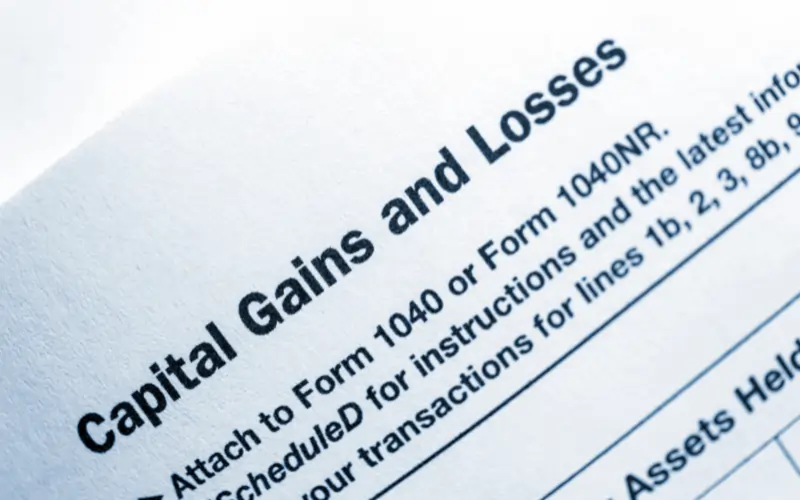
Trusts can be confusing, and dealing with a house in a trust can feel pretty overwhelming. Maybe you’ve inherited a property or are helping with a loved one’s affairs, and now you’re wondering: can you sell your house fast in Dentsville? The good news is that selling a house that is in a trust is possible in South Carolina, but there are some important steps you need to know.
Just know if you’re feeling stressed, you’re not alone. It’s normal not to know where to start or what you’re legally allowed to do. Fortunately, this guide breaks it all down for you, so you can move forward with confidence.
When a house is “in a trust,” it means the property belongs to a special legal arrangement instead of directly to a person. Another way to think of a trust is like a box that holds valuable things – in this case, real estate.
There are three main people involved in every trust:
The reason behind putting a house in a trust is to avoid probate court when the person passes away. The probate process can take months and be expensive, whereas a trust skips that hassle. Trusts also keep family business private since they don’t become public records.
When you want to sell a house, the type of trust matters, which is why understanding the difference will help you know what you can and cannot do.
With a revocable trust, the person who initiated it can make changes to it or cancel it while they’re alive. If the person is still alive and mentally sharp, they usually have the ability to modify the trust or even remove the house from it. This makes selling much easier.
With an irrevocable trust, it can’t be easily changed once it’s set up. The original owner gave up control permanently. Selling a house in trust gets more complicated here because you have to follow strict rules written in the trust documents.
Some trusts have specific purposes, like providing for a disabled family member. These have even stricter rules about when you can sell property.
Yes, if a property is in trust, it can be sold in most cases, but you need to follow certain rules. The most important thing is to check what the trust document says about selling property. Some trusts give the trustee complete freedom to sell whenever they think it’s best. Others require permission from all the beneficiaries first.
If you’re the trustee, it’s your legal responsibility to do what’s best for the beneficiaries. You won’t be able to sell the house just because you want to, or sell the property for less than what it’s worth. Every decision has to benefit the people the trust is supposed to help.
South Carolina law says you must follow the trust rules exactly. So if the document says you need everyone’s approval, then you’ll have to get it. And if you have the authority to sell on your own, you still need to make sure you’re getting a fair price.
In certain situations, like complicated trusts or when family members don’t see eye to eye, you might need a judge’s approval before selling. Although it does take extra time and money, it will protect everyone involved, including yourself.
Selling property in a trust follows a specific process. Here’s what you need to do:
Step 1: Read the Trust Document Carefully
Start by looking for any rules about selling real estate or getting approvals. If you’re struggling to understand the legal language, get a lawyer involved to help. Figuring out early what you can and cannot do will save you headaches later down the road.
Step 2: Let the Beneficiaries Know
Next, you’ll want to tell all the beneficiaries that you plan to sell the house. Even if you don’t need their permission, keeping everyone informed prevents fights later. Make sure to put everything in writing and keep copies.
Step 3: Get a Home Appraisal
You’ll want to get the house appraised or at least find out what similar homes in the area sold for recently. It’s important that you show you’re selling for a fair price that will help the beneficiaries.
Step 4: Get Approvals
Before you put the house on the market, make sure you get approval from the beneficiaries or the court if needed. You don’t want to miss this step, or it could create serious legal problems.
Step 5: Make sure the Paperwork is Correct
All the paperwork needs to show the trust as the seller, not you personally. So, at closing, make sure the documents are signed as “Your Name, Trustee of the Trust Name.” By doing this, you will protect yourself from getting sued if something goes wrong.
It shouldn’t come as a surprise that taxes look different when selling a home in a trust compared to selling a house you own yourself.
Here’s what that would look like with the two types of trusts:
Taxes for a Home in a Revocable Trust
The IRS treats the home in a revocable trust like the original owner still owns the property, so the taxes are pretty simple to calculate. If the property is the main home for two of the past five years, they might not owe any capital gains taxes on profits of up to $250,000 or $500,000 if married.
Taxes for a Home in an Irrevocable Trust
Irrevocable trusts have entirely different tax rules, and if there are any profits from the sale, the trust itself might have to pay taxes. A tax break called “stepped-up basis” usually applies, however, and can reduce or eliminate these taxes when someone inherits property.
Talking with a tax professional is always recommended because trust taxes can be confusing. Plus, they would be able to help you structure the sale so you would pay the least amount of taxes legally possible.

Getting the right price is crucial for many reasons when selling a house that’s in a trust, but the main reason is that you’re legally required to get fair value for trust property.
By hiring a licensed appraiser, you’ll be able to determine the property value by a professional. They factor in the houses’ condition, compare it to similar properties that sold recently, and give you an official appraisal report. This costs money upfront, but gives you solid proof that you priced it fairly.
Another option, you ask a real estate agent for a market analysis, but it won’t be as detailed as an appraisal. Plus, they usually are willing to do this with the expectation that you use them as your listing agent – just know there are strings attached.
Another option you can also check online estimate tools for a quick guess, but don’t rely solely on these. They don’t know about specific problems or improvements that affect the real value.
You’ll likely see that selling a house in a trust comes with some unique problems that regular home sales don’t have.
The biggest issue is usually disagreements between beneficiaries (surprise, surprise) over who might want to sell quickly for cash, while others want to keep the house in the family. To manage the family disagreements (and family drama), make sure to encourage clear communication and good record-keeping.
Trust properties are usually older homes that need work, especially if they’ve sat empty or haven’t been maintained well. To get the house ready to sell, there might need to be repairs made, deep cleaning, or updates to attract buyers. It will be your job to decide if spending money on improvements will increase the sale price enough to be worth the time and effort.
Title problems can also pop up. In some cases, the original paperwork placing the house in the trust wasn’t done correctly, or there are liens on the property that need to be cleared. A real estate lawyer will be able to help fix these issues.
People often ask how long a trustee has to sell a house. While there’s usually no legal deadline, beneficiaries might pressure you to sell fast, or market conditions might make timing important.
Making the sale of a house that is in a trust go smoothly requires good planning and attention to detail.
Start by building a team of professionals who understand trust sales. You’ll need a real estate lawyer who knows South Carolina trust law, a tax advisor, and a real estate professional who’s handled trust properties before.
Keeping detailed records of everything is key. You’ll want to make sure to save copies of all communications with beneficiaries, appraisals, repair estimates, and closing documents. Good records protect you if anyone questions your decisions later.
Be upfront with potential buyers that the property is owned by a trust. This doesn’t usually hurt the sale, but trust sales sometimes take longer to close than regular transactions.
Consider working with cash home buyers in Seven Oaks or other areas if the house needs major work or you want to avoid the hassles of traditional real estate marketing. Cash buyers who understand trust properties can often close much faster than regular buyers.
If you’re dealing with complications like selling a home with a reverse mortgage or selling a home with a mortgage in SC, make sure you understand how these loans will be handled in the sale.
Selling a house that’s in a trust in South Carolina is possible, as long as you understand the rules and follow all the proper steps. As the trustee, just make sure you follow what the trust document says and make decisions that help all the beneficiaries.
Even though it may seem complicated at first, taking it one step at a time makes it doable. Really, your role includes: reading the trust document, communicating with beneficiaries, getting professional help when needed, and documenting everything carefully.
But if the process still feels overwhelming or you’re dealing with a property that needs significant work, remember there are simpler alternatives. We buy houses in Columbia, SC, and surrounding areas, specializing in situations just like yours. Understanding how it works to sell to High Noon Home Buyers can provide a straightforward path when traditional sales seem too complicated.
Fortunately, you don’t have to figure this out all on your own, because if you need legal guidance, tax advice, or want to explore options for a quick, hassle-free sale, help is available. For more information about us – High Noon Home Buyers and how we can simplify your trust property sale, or to explore your options, contact us for a free consultation about your specific situation.



© High Noon Home Buyers. All Rights Reserved | Designed with 💙 by Reibar Marketing